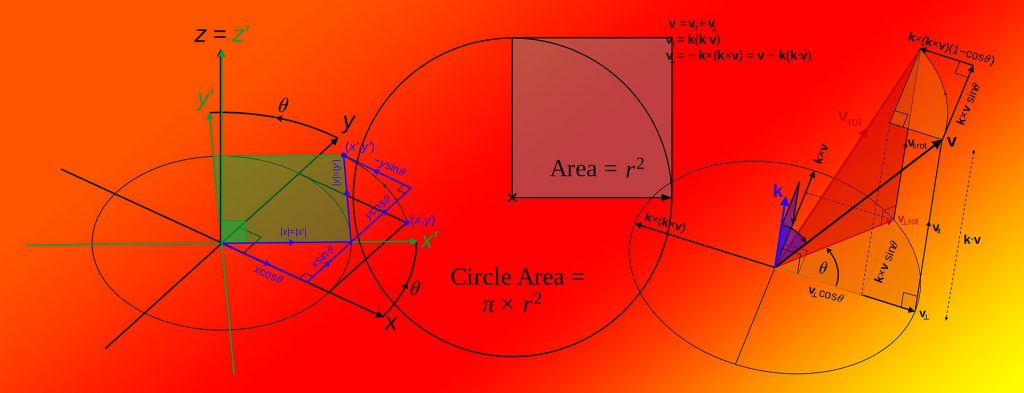“I never use the concepts I learned in school”
I hear this statement often. In conversations with students, parents, friends, colleagues, public, even in memes. Generally, this statement is accompanied by a critique of the education system. How our education system is teaching us ‘useless concepts’ while it should be more utility oriented. Also, these exclamations are directed towards concepts in Maths (Eg: algebraic equations) and Science (Eg: thermodynamics)
As a scientist and educator, my initial response to these questions is defensive. I tend to be offended and get into long discussions about respect for knowledge and whatnot. Recently, however, I realised that taking a more empathetic view is prudent. Therefore, after a recent texting conversation in my office group, I decided to wear the teacher’s hat and educate people about this.
Concepts are not useless
Let me examine some clarifications relevant to the ‘usefulness of concepts’.
Where concepts come from?
Firstly, it is imperative to understand that the content we study in school is a distillation of decades of research. Scientists have observed and studied the universe for centuries, conducted experiments, and formulated theories. A simplified version of all this collective knowledge goes into school textbooks. The question is not, “where is this concept from my textbook applied in the world?” The question is, “how did this concept move from application in the universe to a paragraph in my textbook?”
Building blocks
Let us consider this thought: “I do not use A, B, C, D in my everyday life. Learning the alphabet was useless. It should be removed from the school curriculum.” Sounds absurd, right? We do not use the alphabets themselves because we have advanced to learning the language. To learn the language, the alphabets are building blocks. So, in our everyday life, we use the language, not the building blocks.
Similarly, simple identities like (a + b)2 and theorems like Pythagoras theorem are the building blocks of Algebra and Geometry. As you progress in learning, they evolve into complex concepts of Calculus and Trigonometry. If the building blocks are removed from the foundation, then the building collapses.
Conscious use
If you are in a profession that is related to advanced Mathematics or Science, then you will use these concepts directly in your work.
Examples:
- If you are a civil engineer, you will use Trigonometry in your building plans
- If you are a pharmaceutical scientist, you will use chemical reactions in your lab
- If you are a doctor, you will use your extensive and specialised knowledge of human anatomy and physiology
Subconscious use
If you have done any cooking in your life, you have used ratio and proportion. It is not necessary for the cook to know the formula or the theory behind ratio and proportions. They use it by practice. If you have ever driven a vehicle, you are using the concept of turning radius with every turn you make. Whether you know the formula for the circumference of a circle is immaterial. The fact that you use the concept in practice is what keeps you safe while driving.
Also, each one of us is a beneficiary of these concepts being used. All of us need food. Whether we cook the food ourselves or someone cooks for us, we are the beneficiaries of ratio and proportion in action. If we live in a strongly built house, we are the beneficiaries of trigonometry and thousands of other concepts in action. If we use a touch screen, we are the beneficiaries of a capacitor in action.
Why is it important to learn these concepts in school?
In school, children are clean slates. We do not know what professions they are going to choose when they grow up. Therefore, they are given the building blocks of multiple subjects. They may choose whatever profession they prefer, but the building blocks are laid out in school.
If one decides to become a doctor at the age of 18, it is impractical to start the lesson from parts of the human body. We learned parts of the human body in kindergarten and primary school. As adults, we might use Microsoft Excel for all our computation needs. But the programmer who coded for the formula in Excel needs to know the formula and the desired result. If their basic concepts are shaky, every computation we make using the spreadsheet application will be wrong.
Putting it in context
The next time you get frustrated about the concepts learned in school, step back, and think for a bit. Reflect on all the ways your life is benefited because someone is correctly using the concepts learned in school. Who knows, it might even be your own classmate!
For more insights on this topic, read some of our earlier articles here, here, and here.
Do share your thoughts in the comments section.
Featured image credits: Gerd Altmann from Pixabay
Dr. Soumya Sreehari
Latest posts by Dr. Soumya Sreehari (see all)
- To drink water or not to drink – that is the question - 11 June 2021
- Puzzles for fun and learning - 28 May 2021
- A questioning mind is a thinking mind - 14 May 2021
- Play and learn having fun with words - 7 May 2021
- 4 lessons to learn from the Montessori method - 30 April 2021


Thank you for answering to my question
Surely, Vasundara! I am glad we had this conversation… 🙂